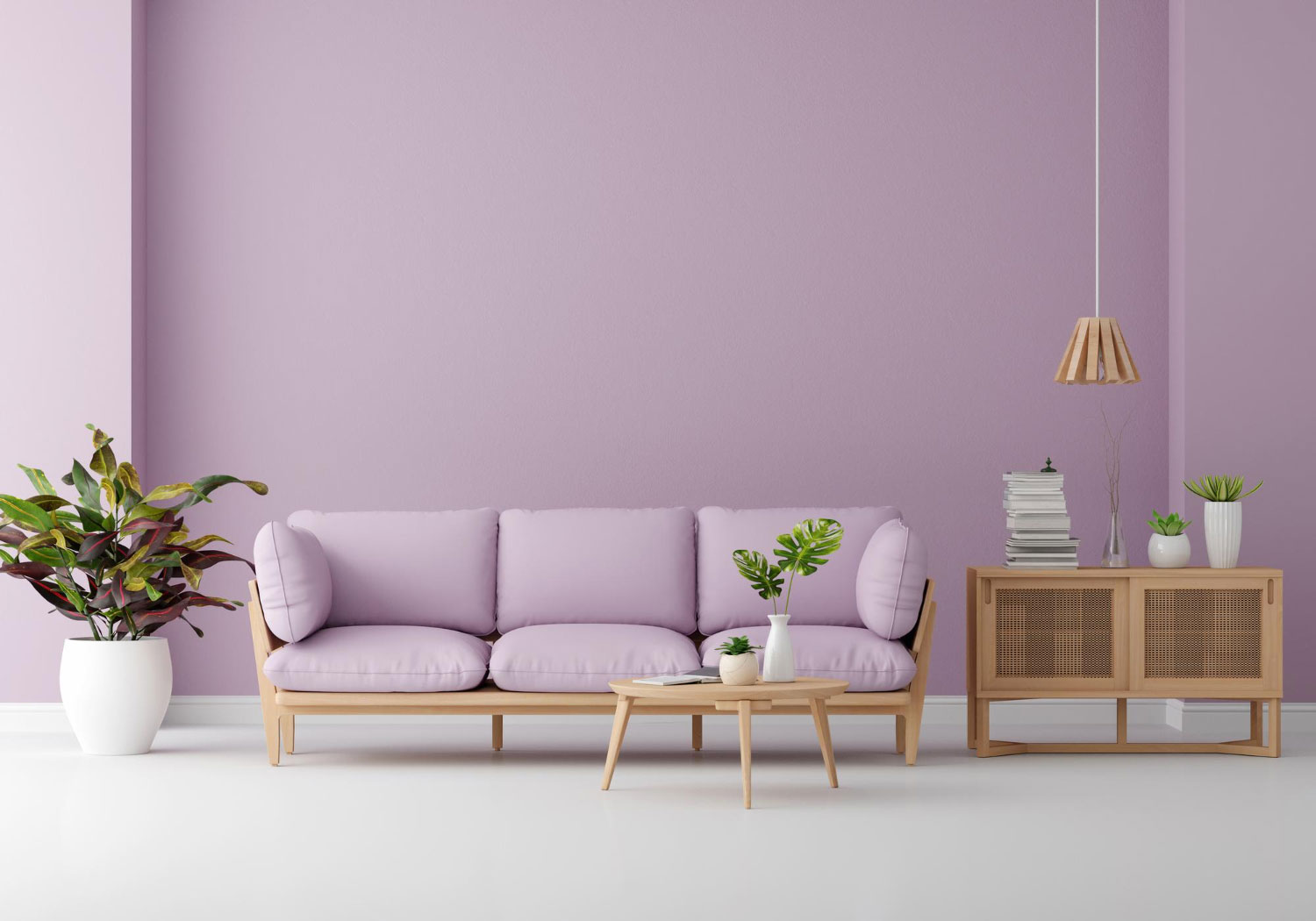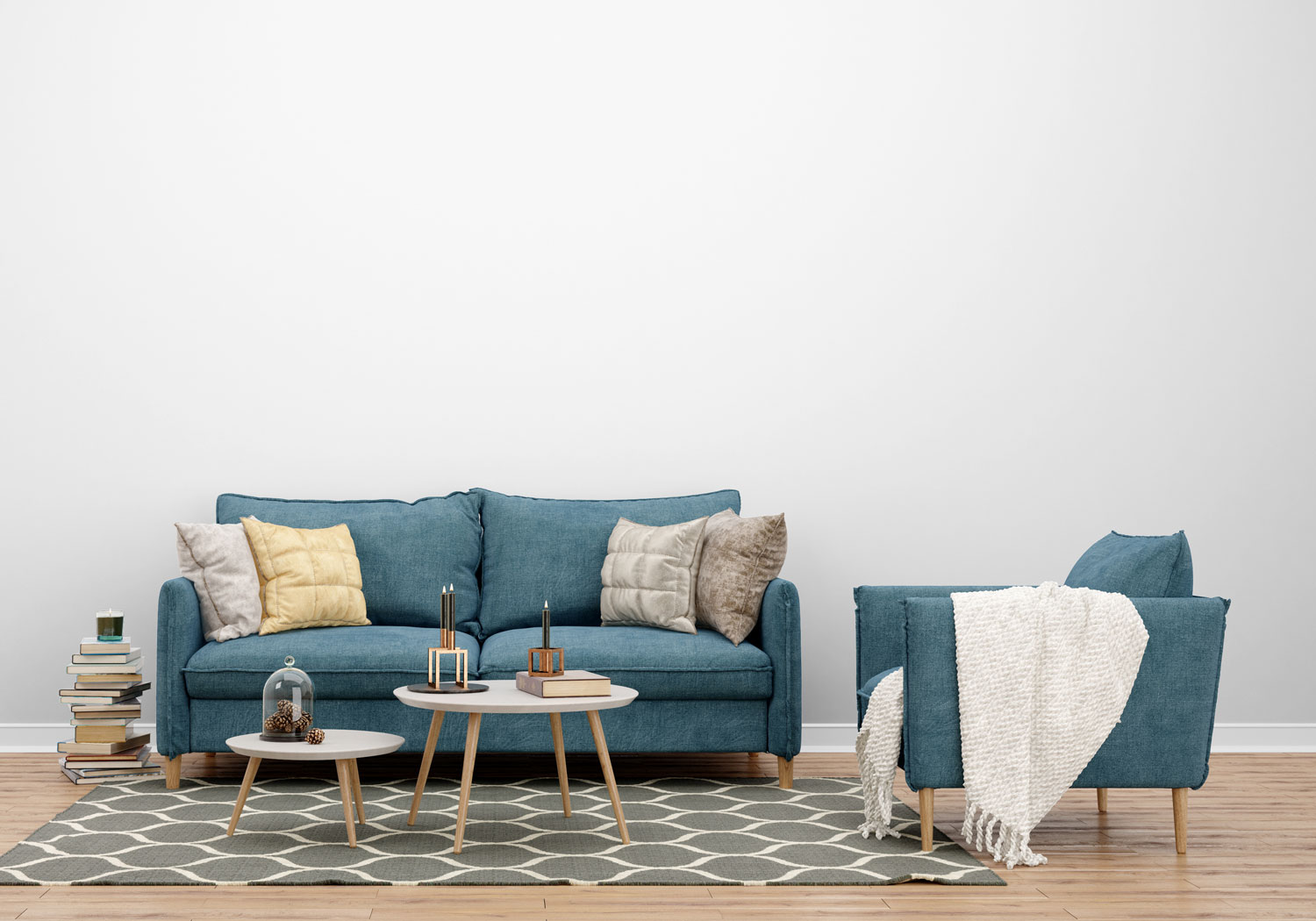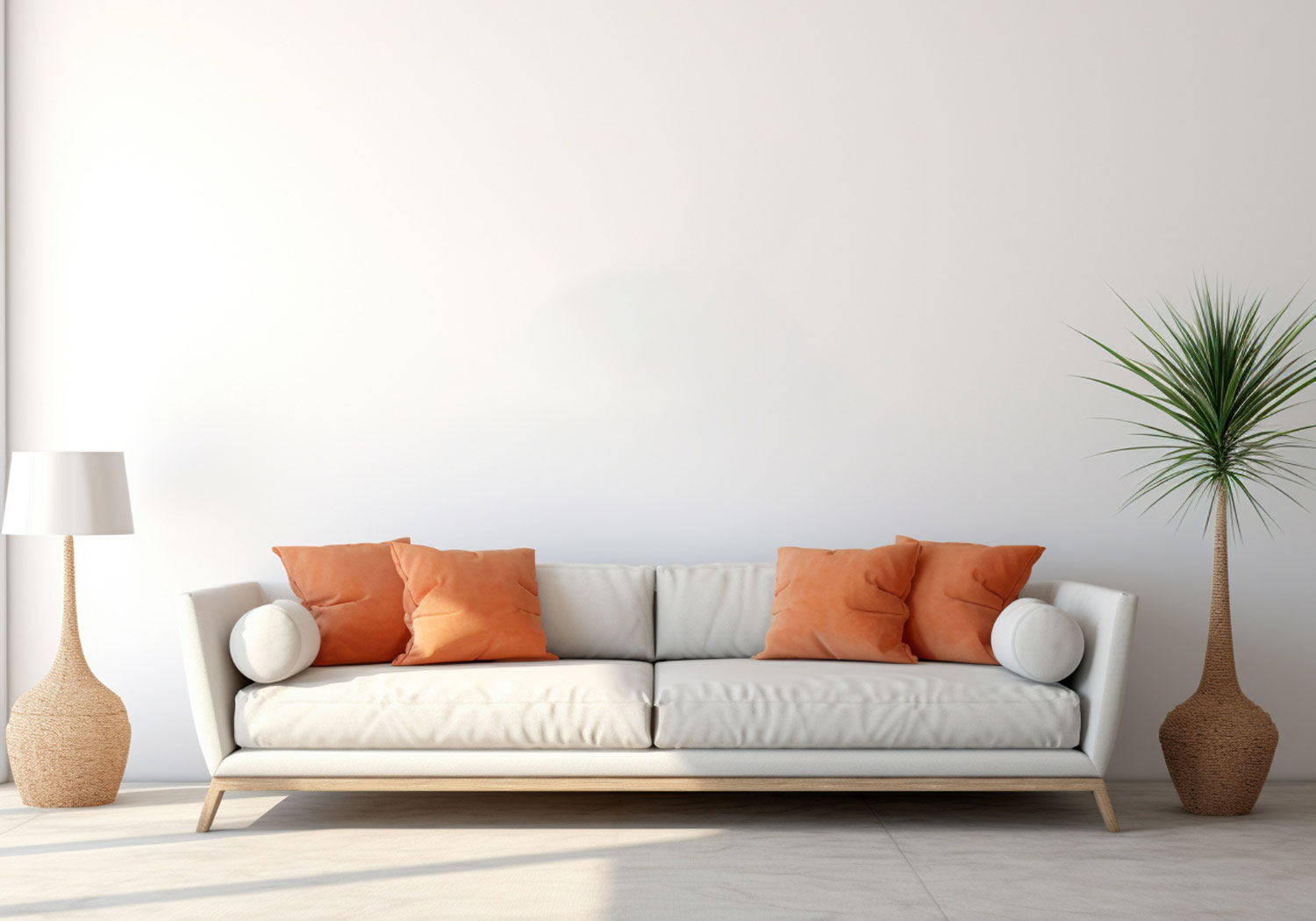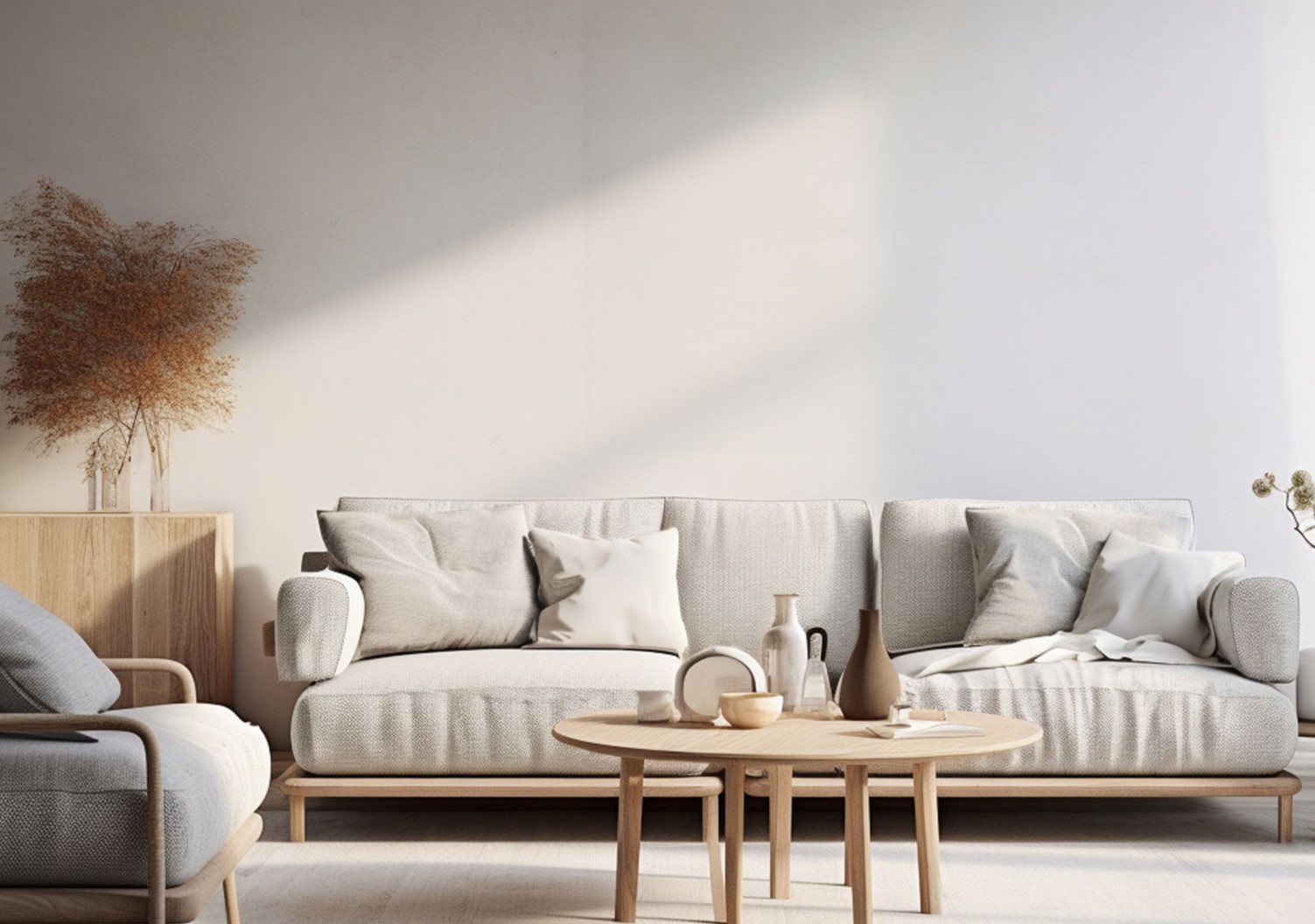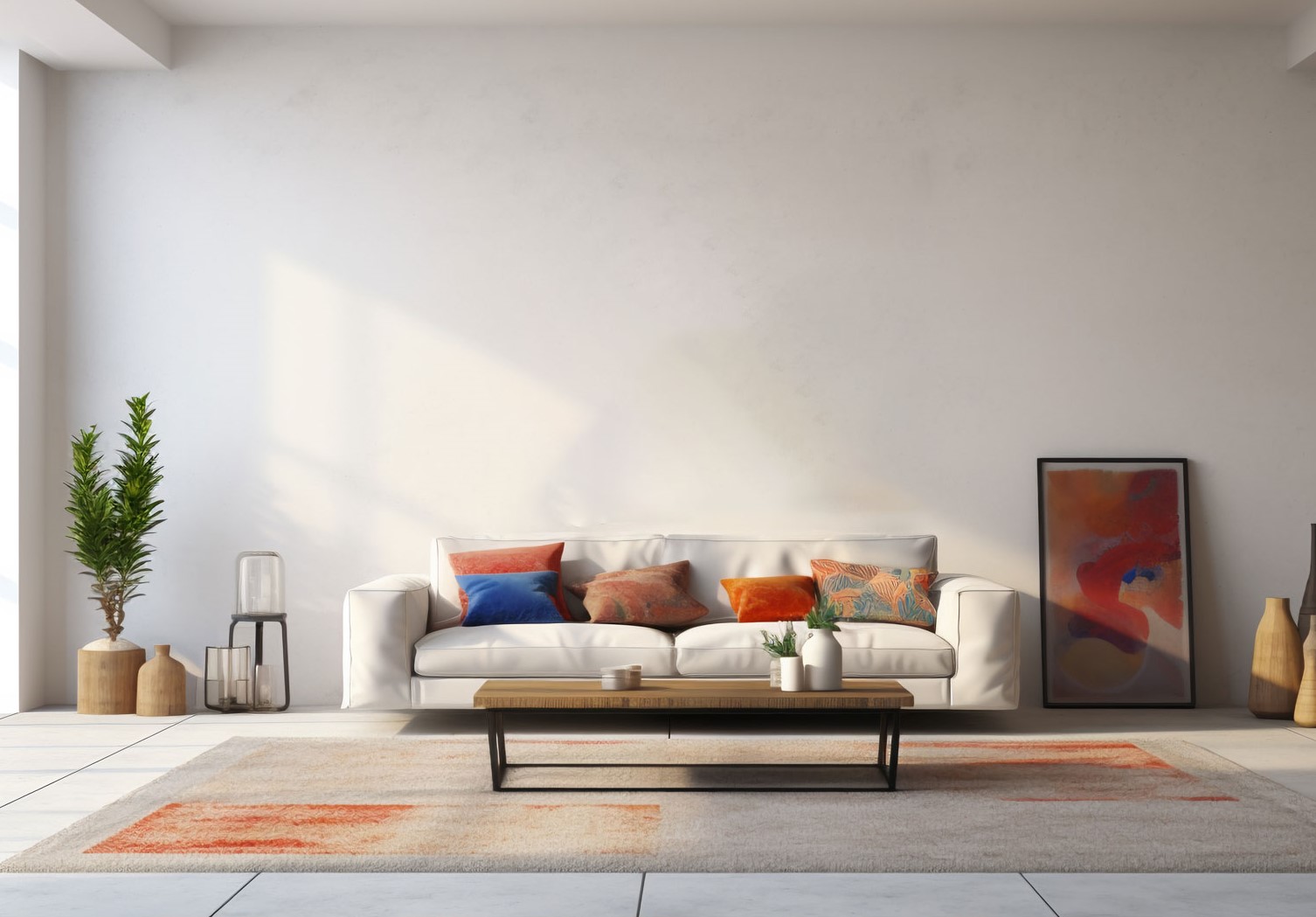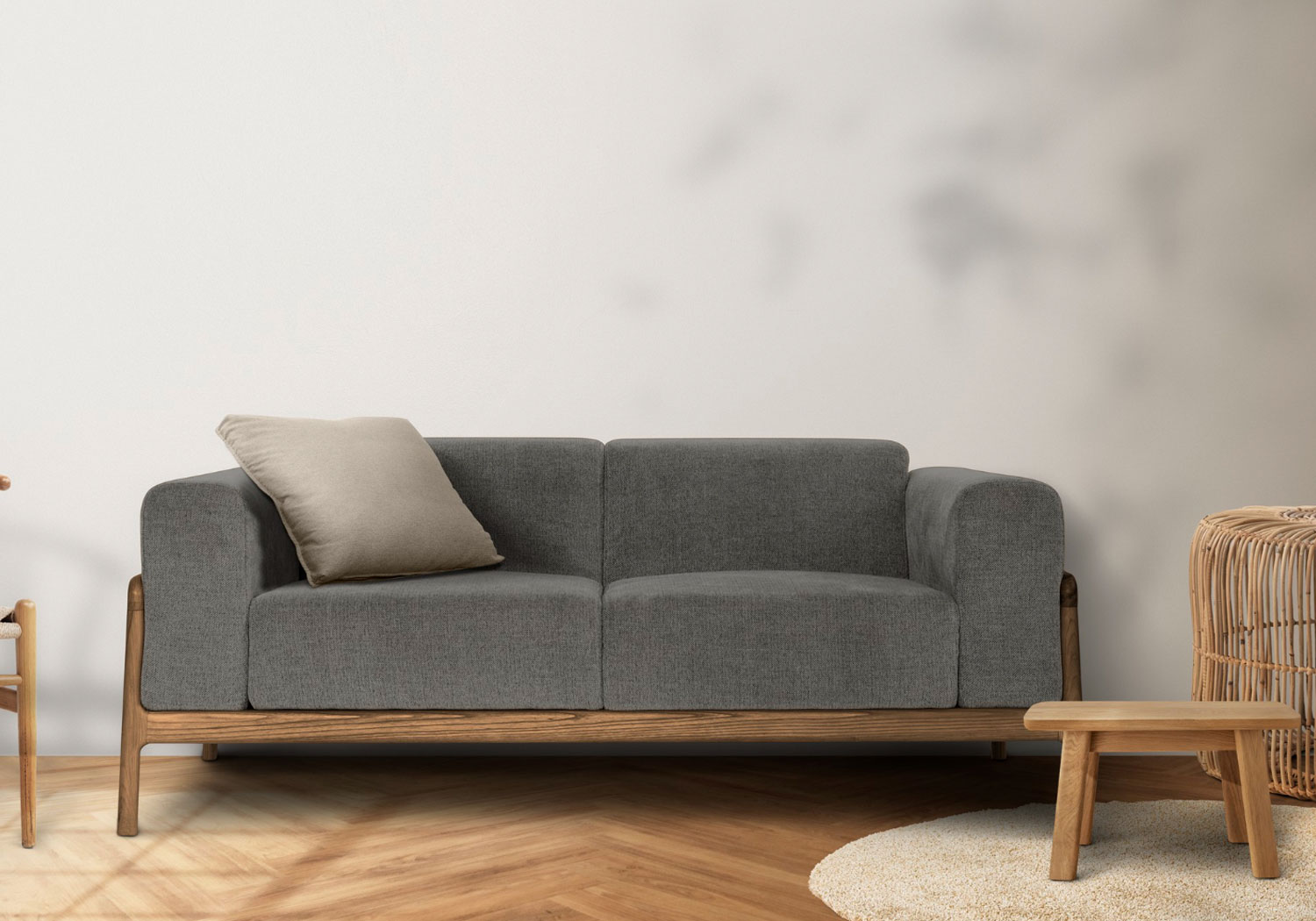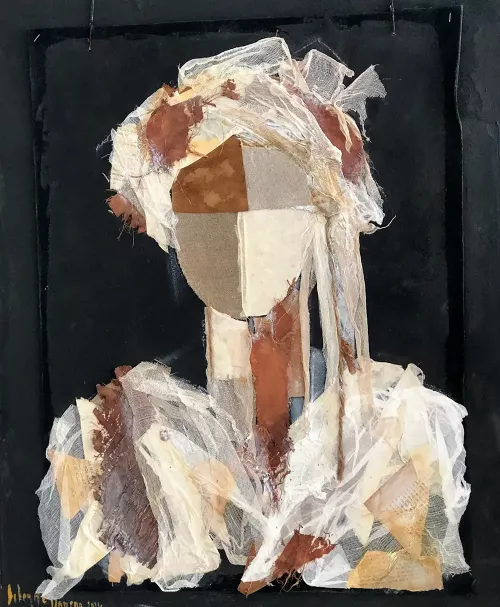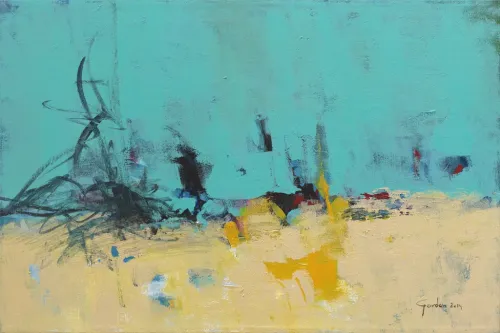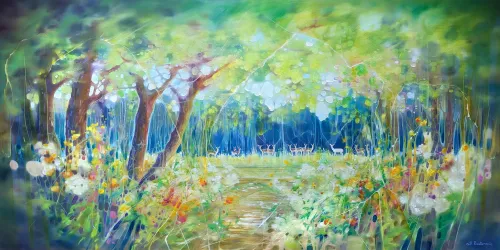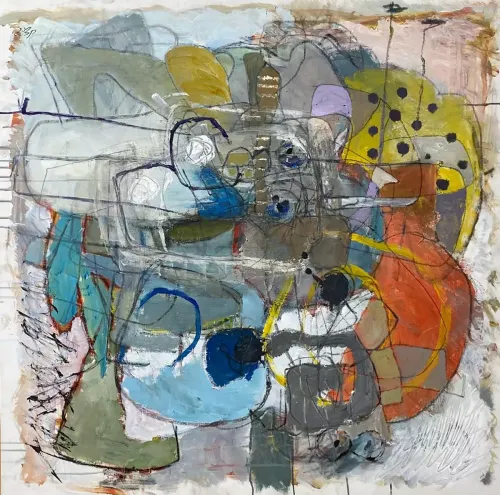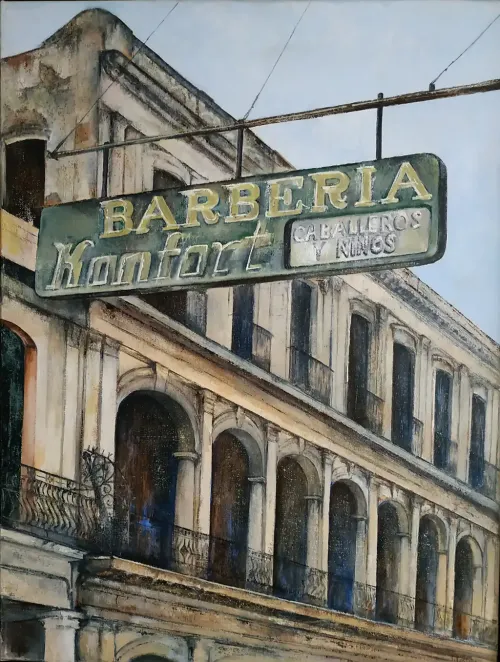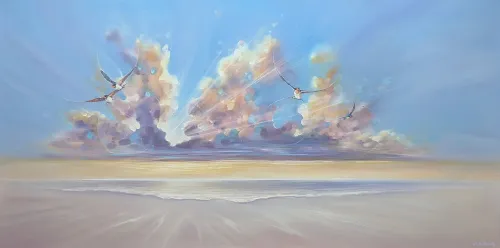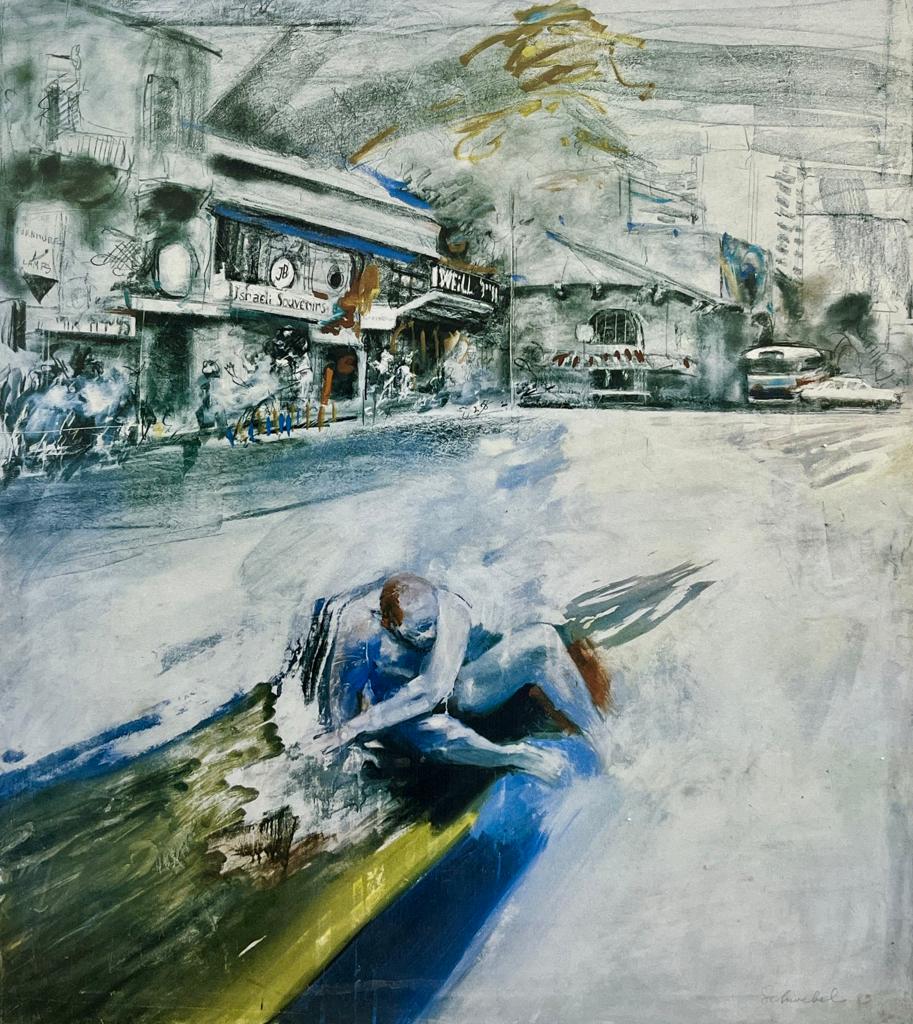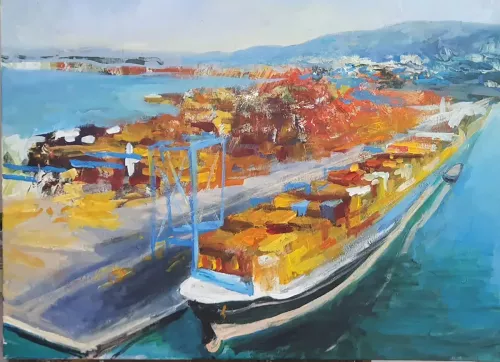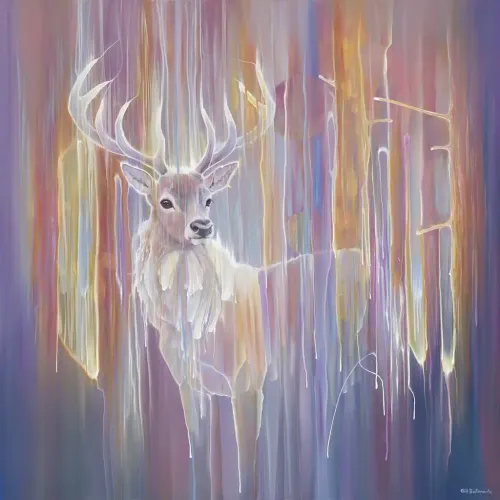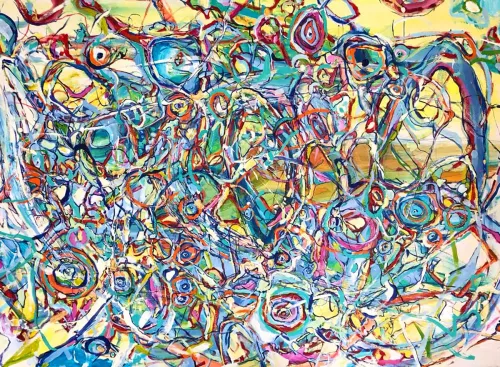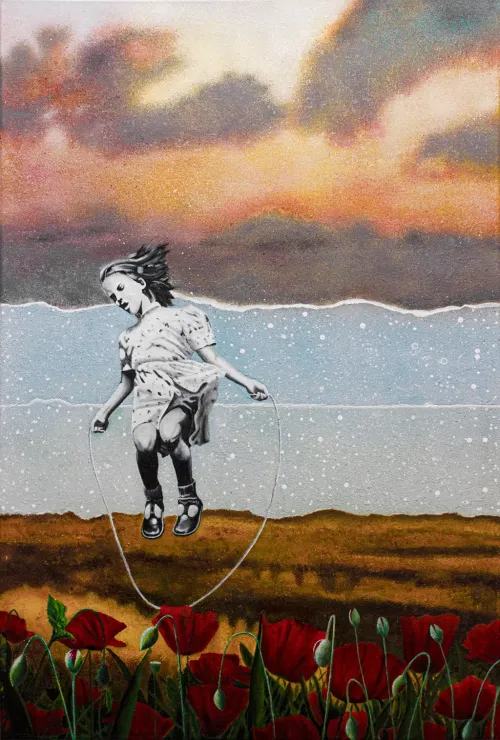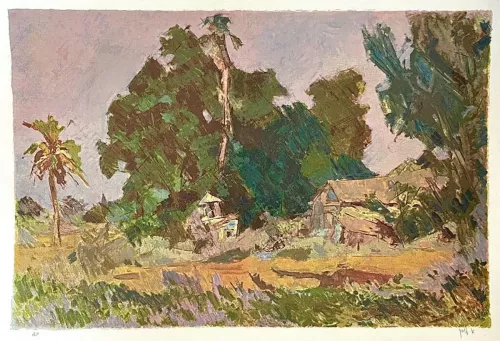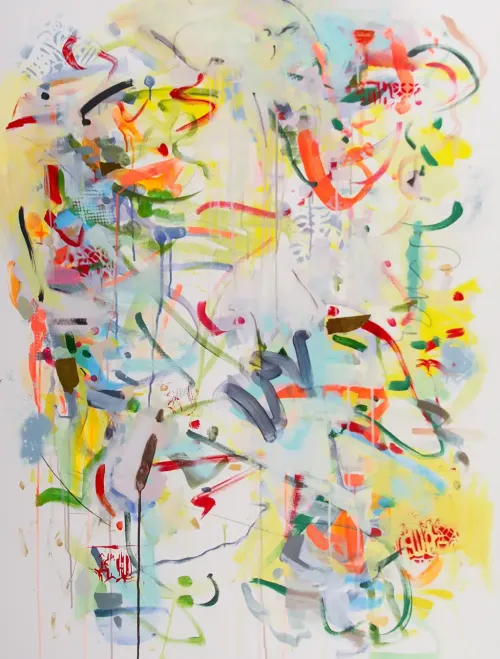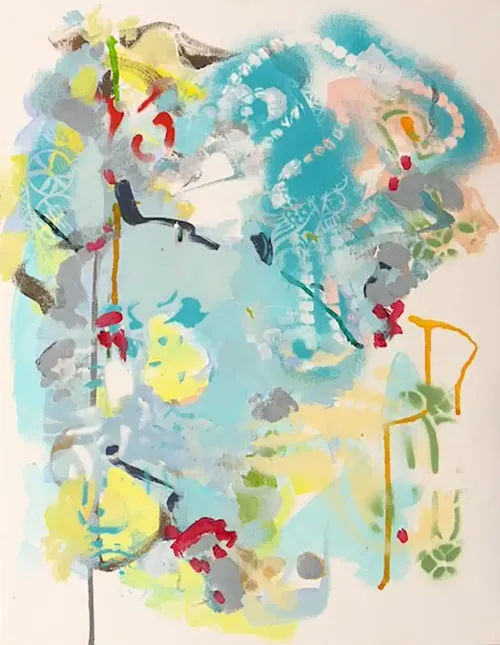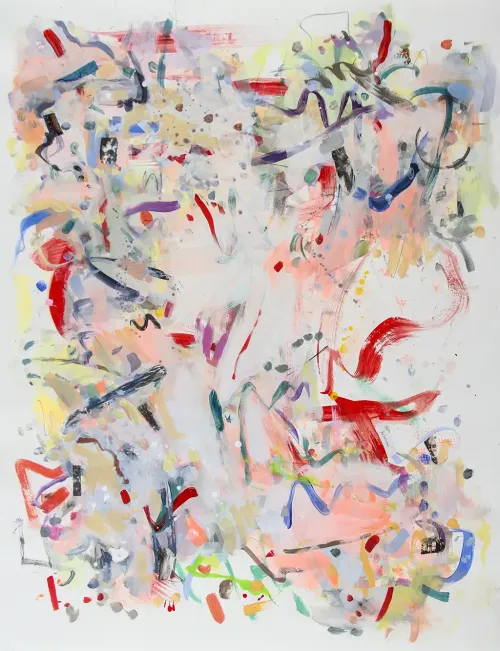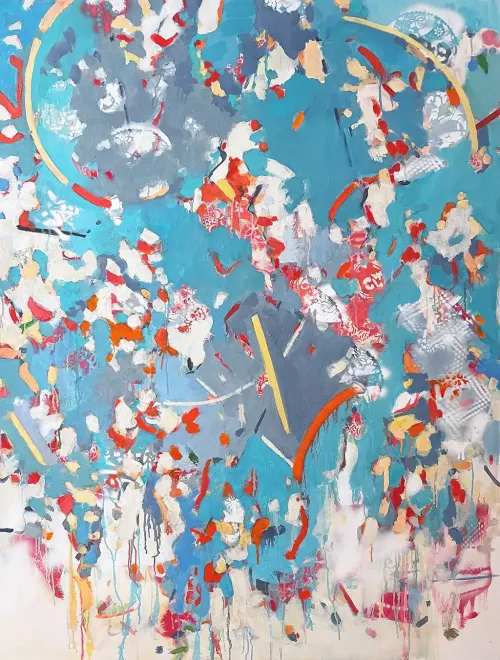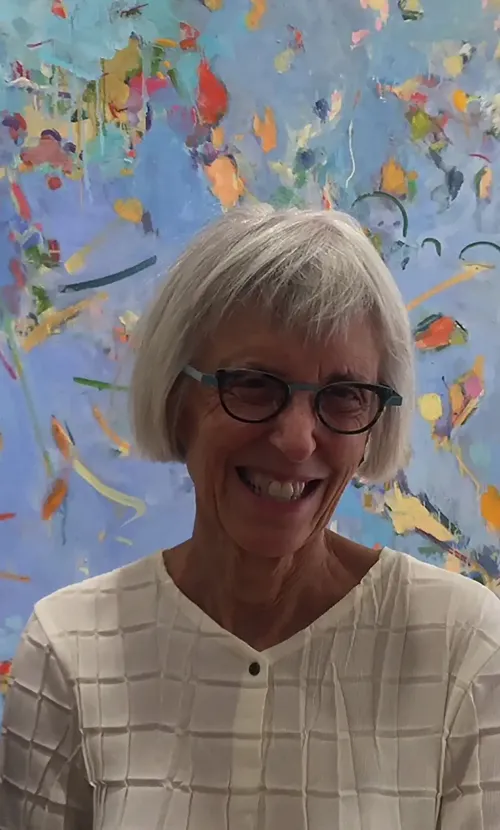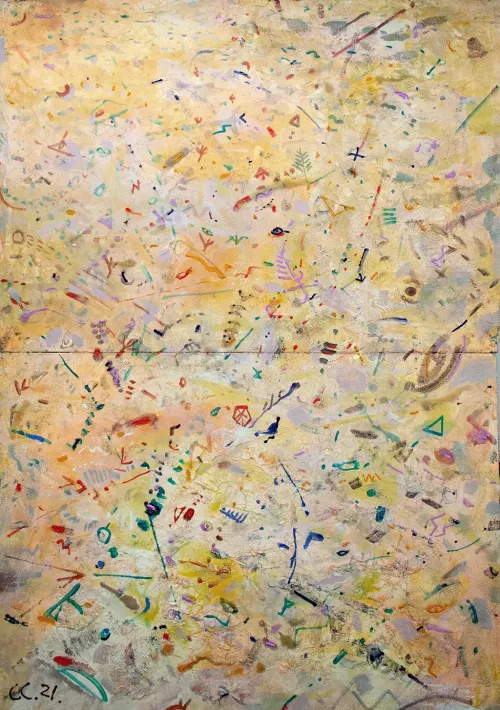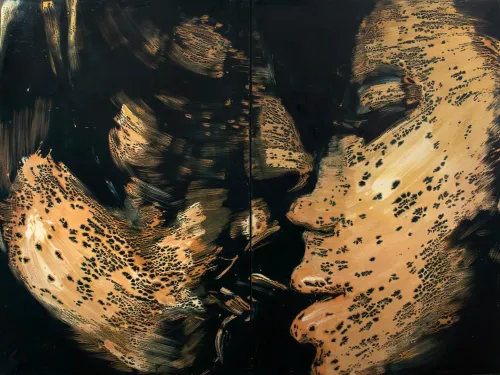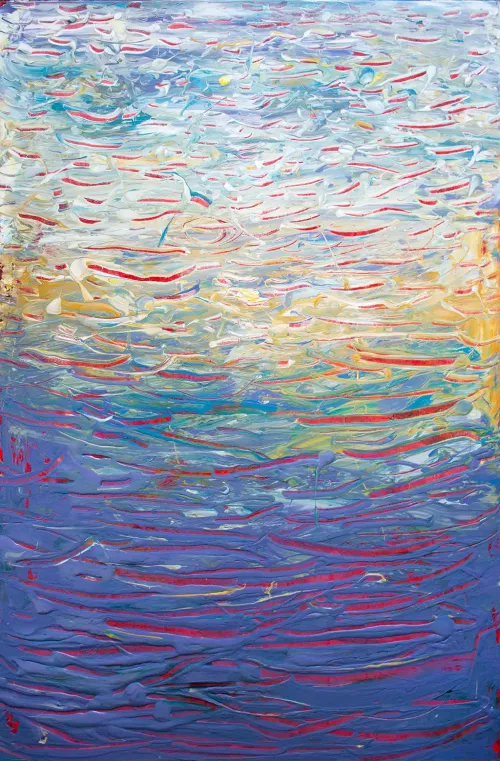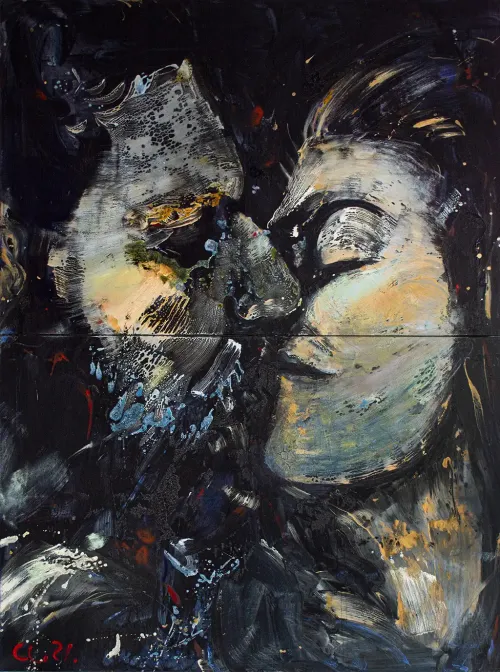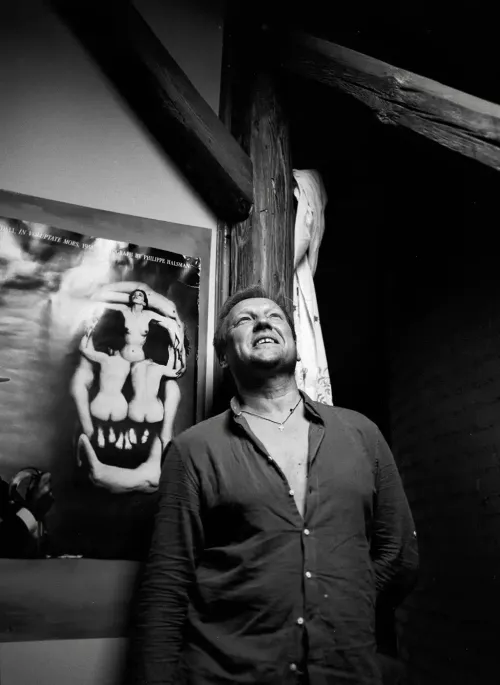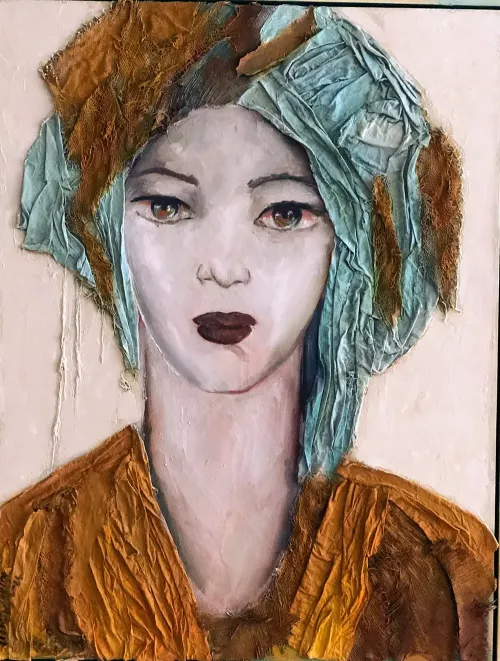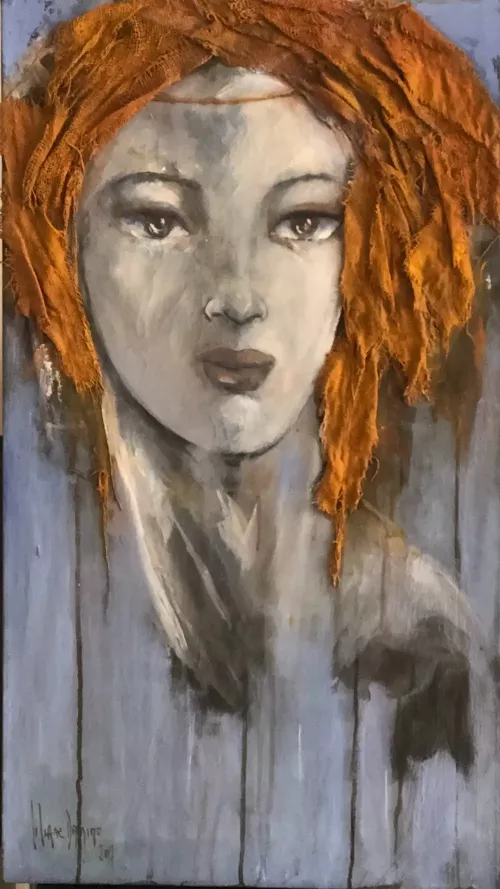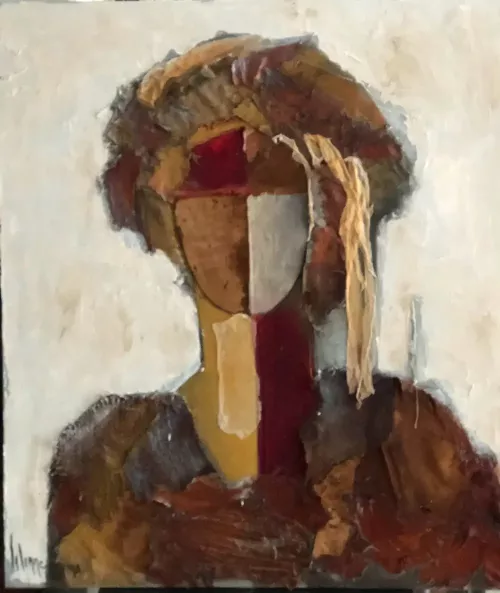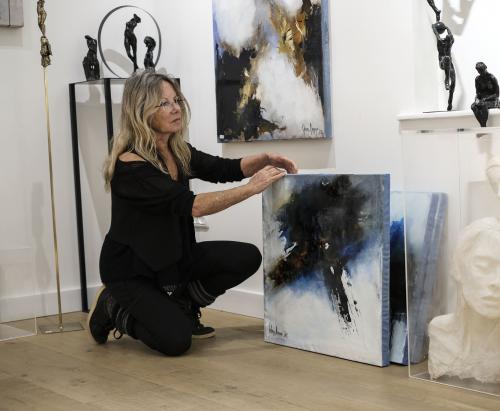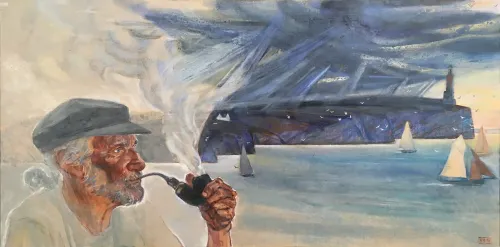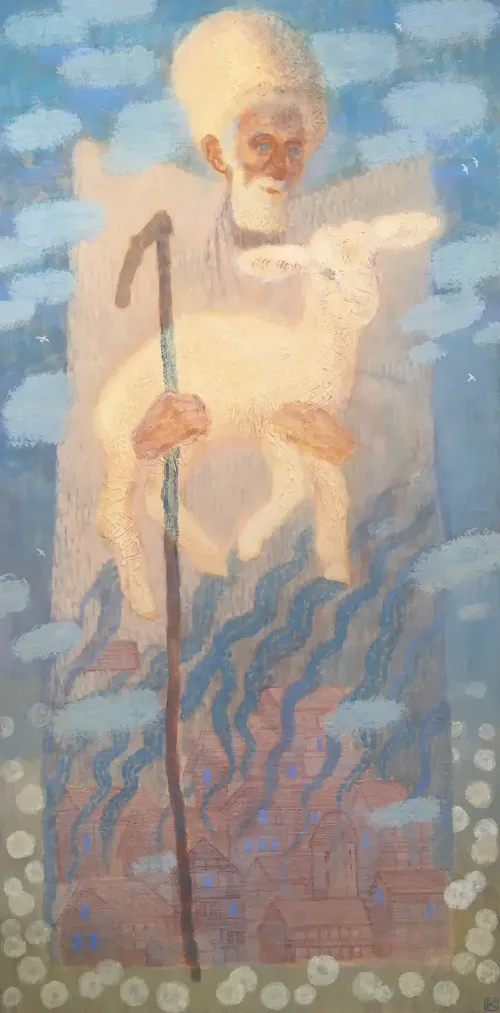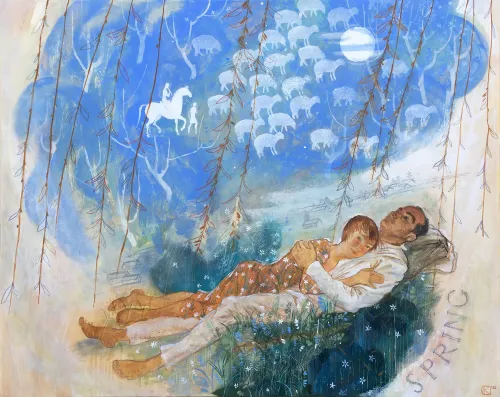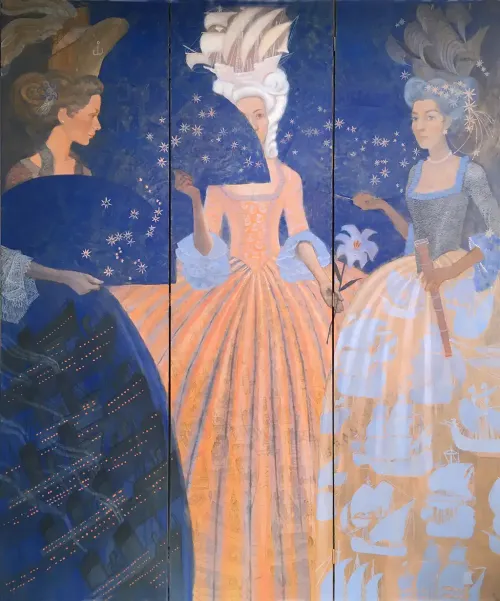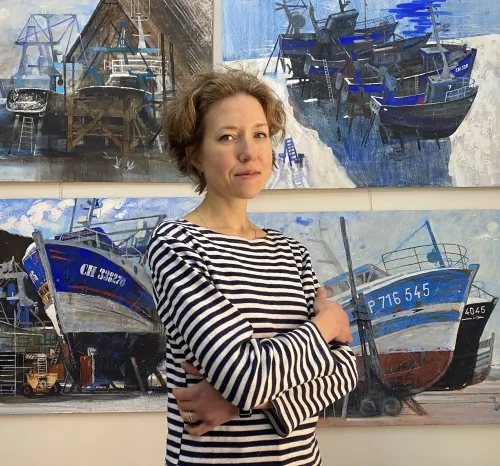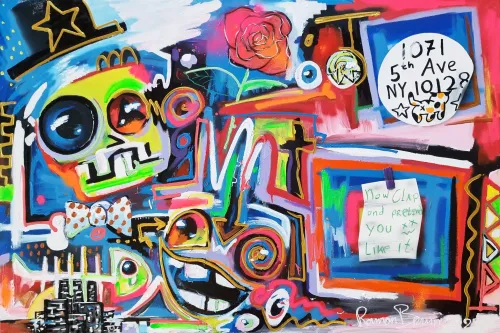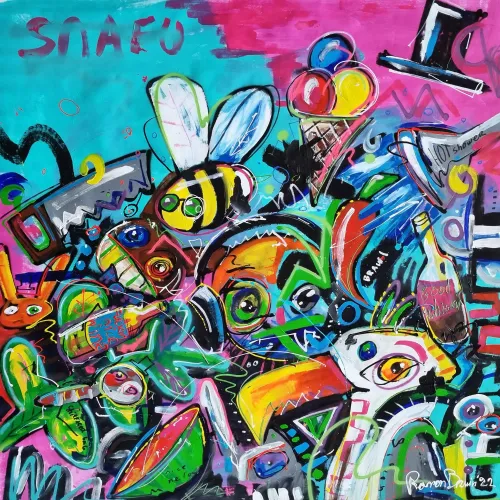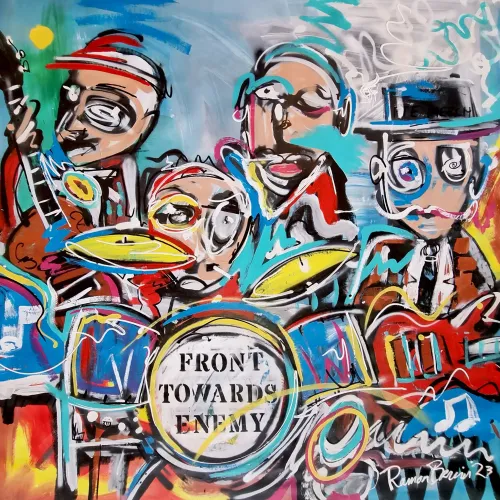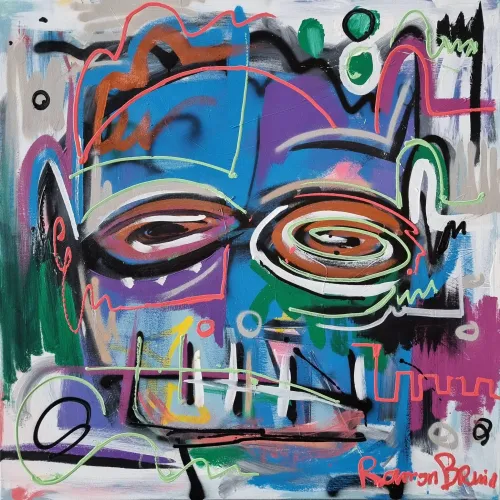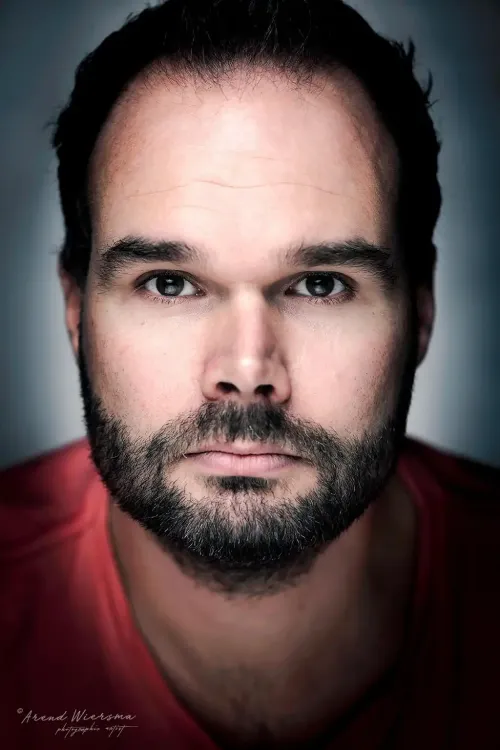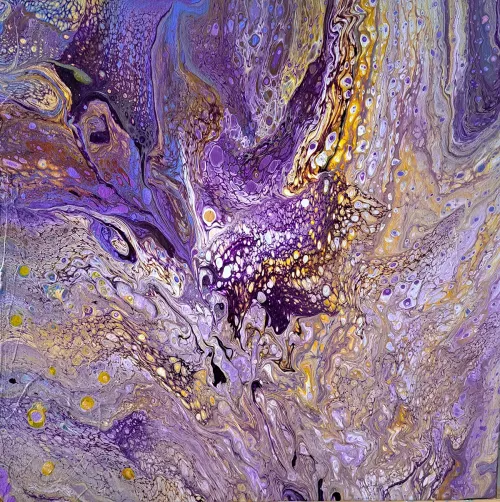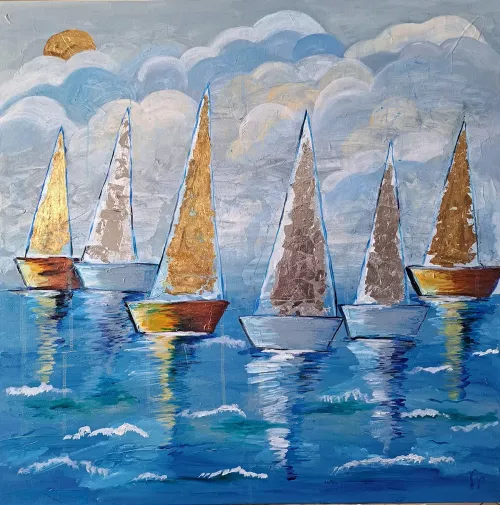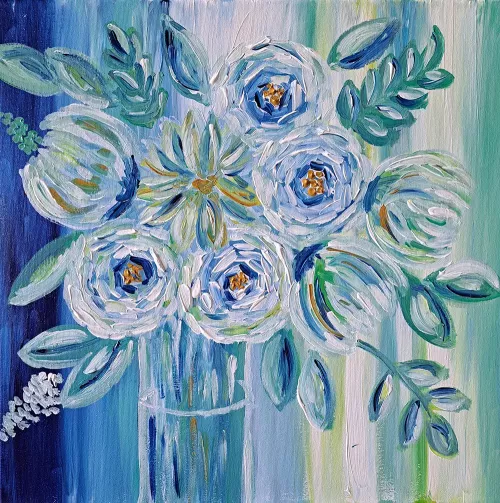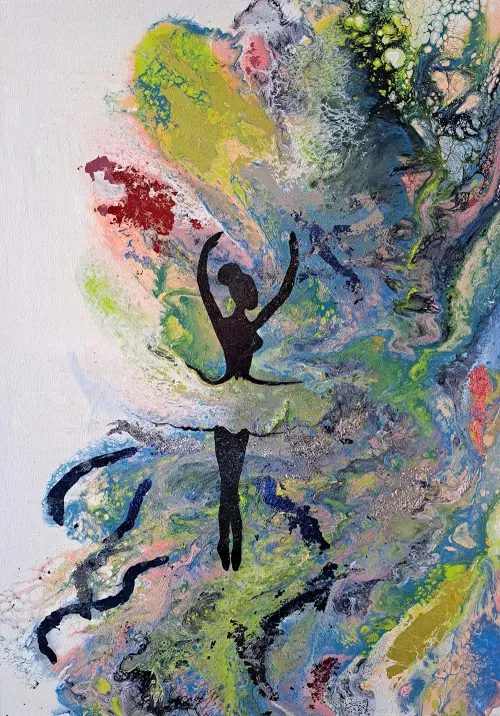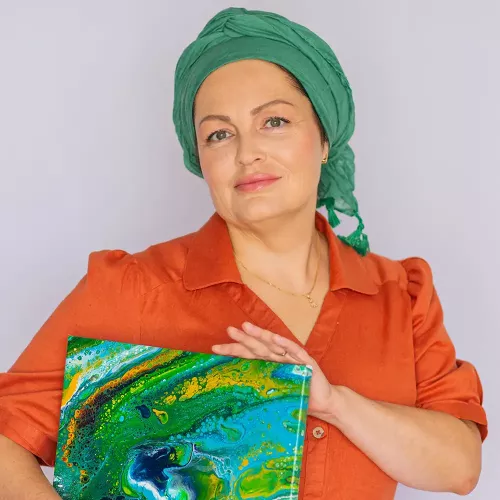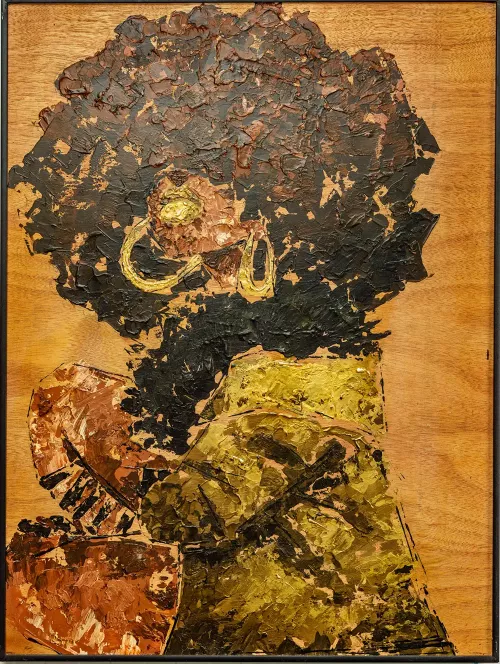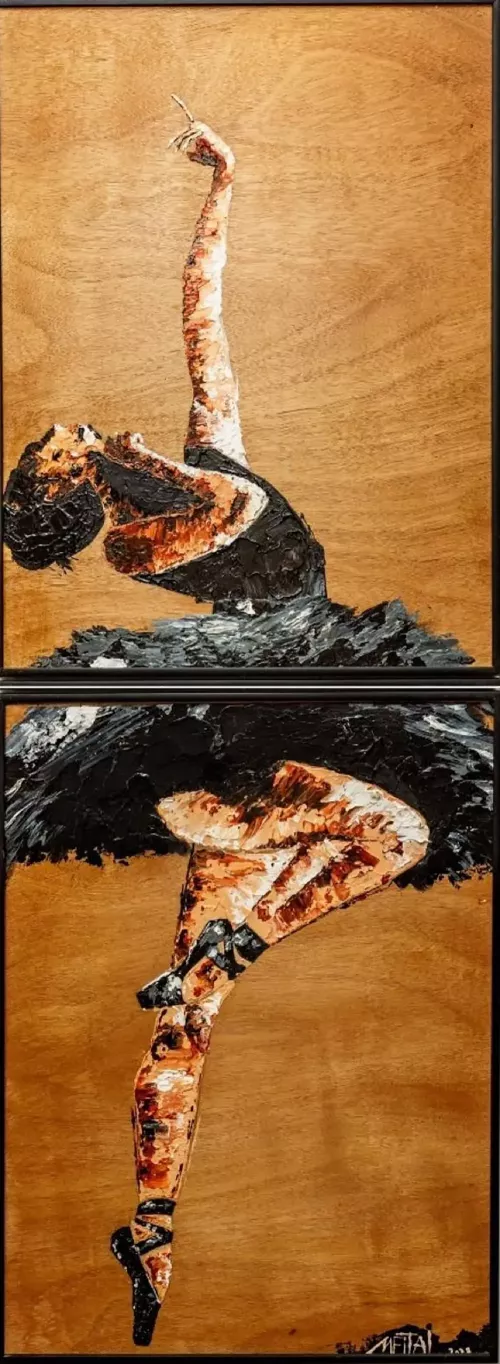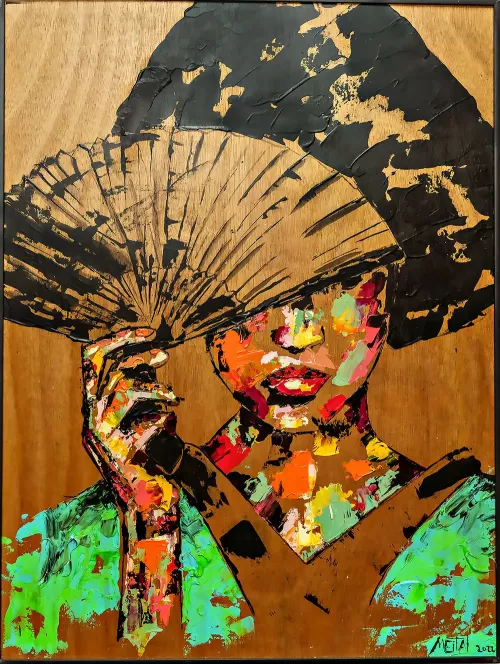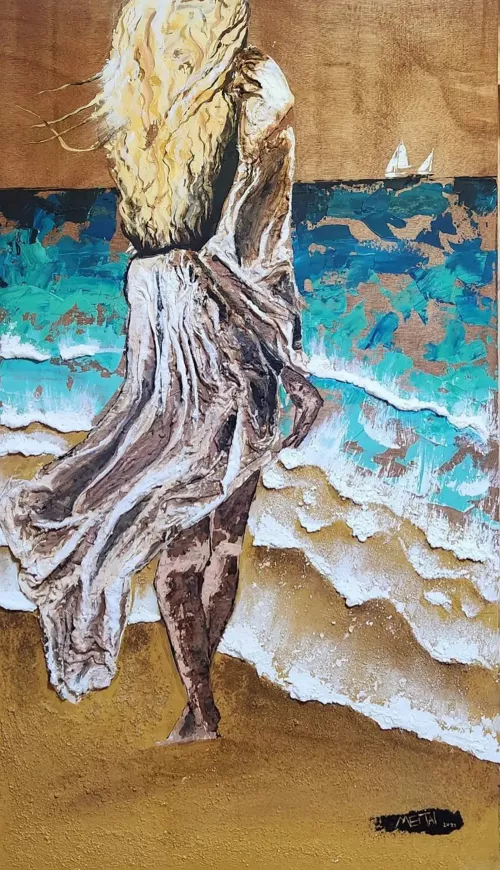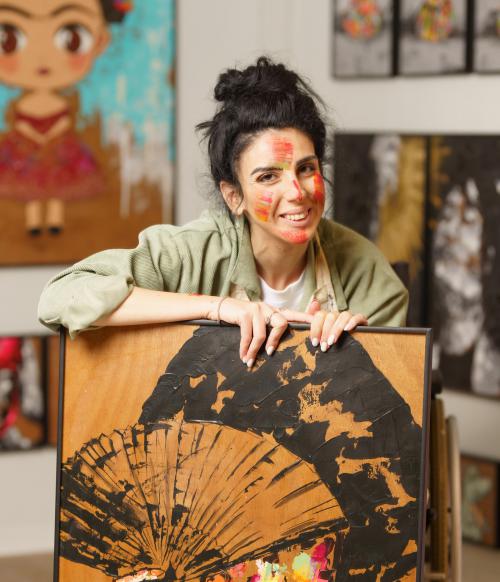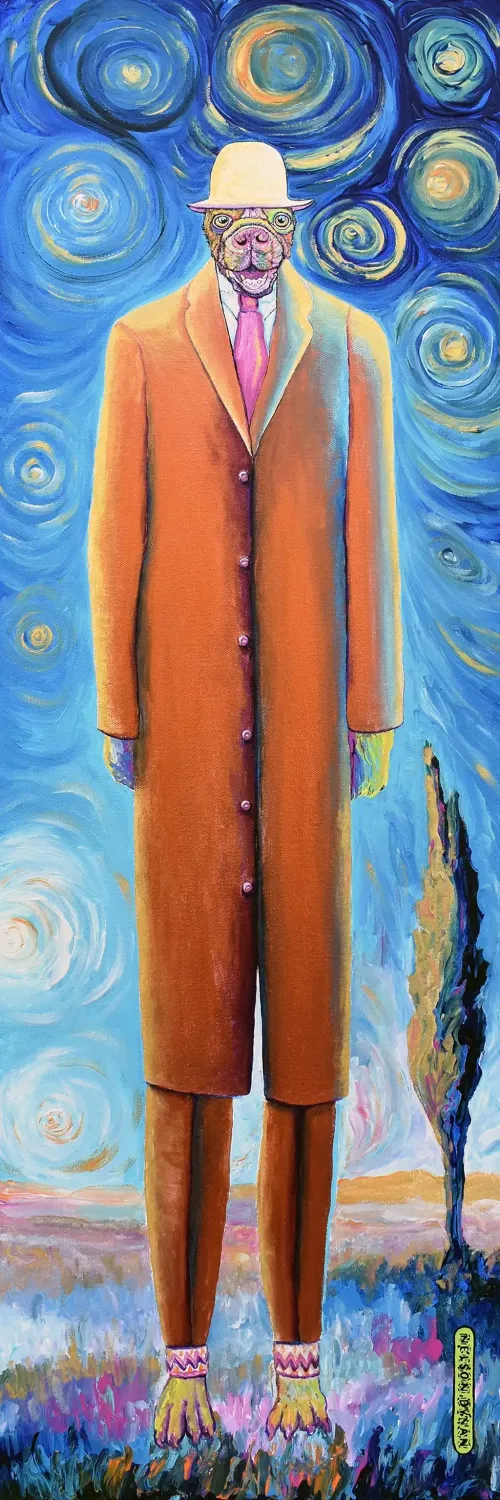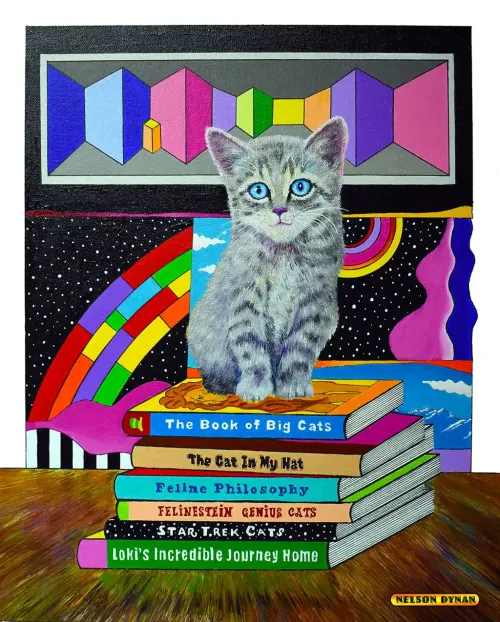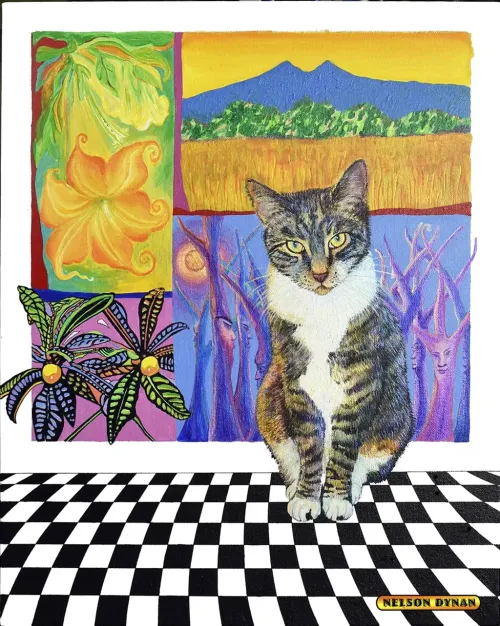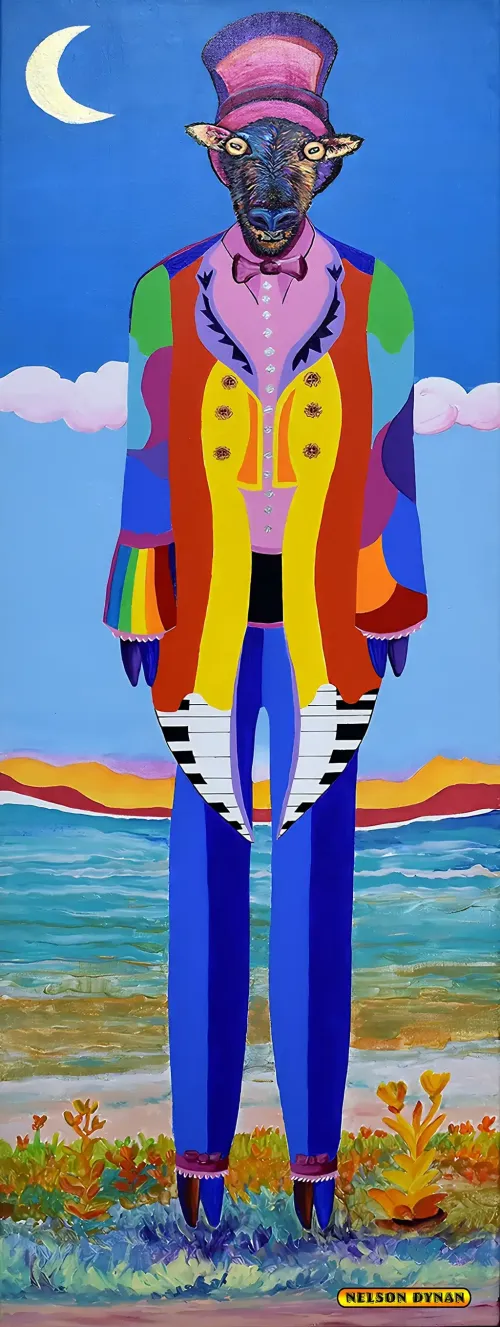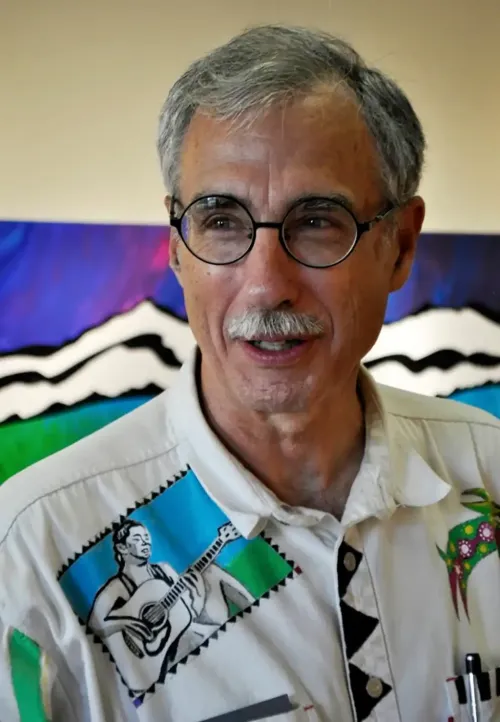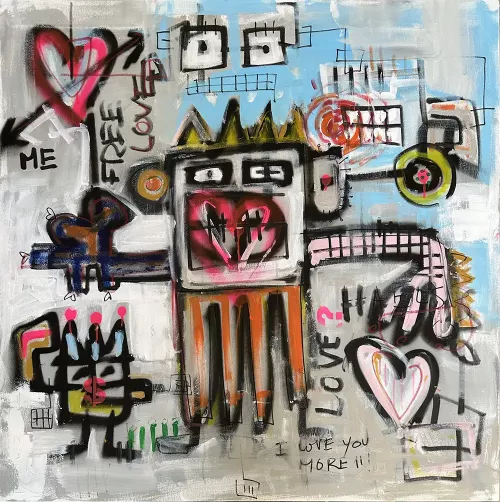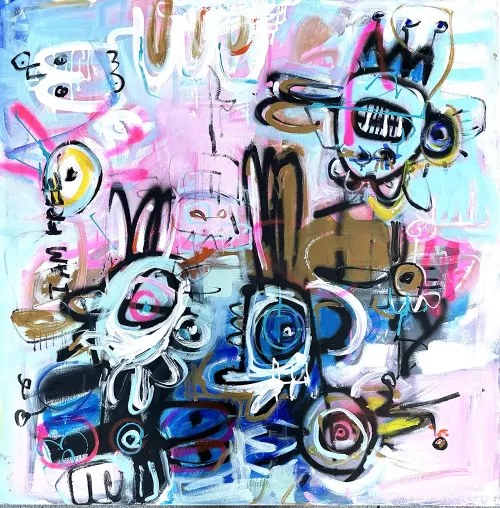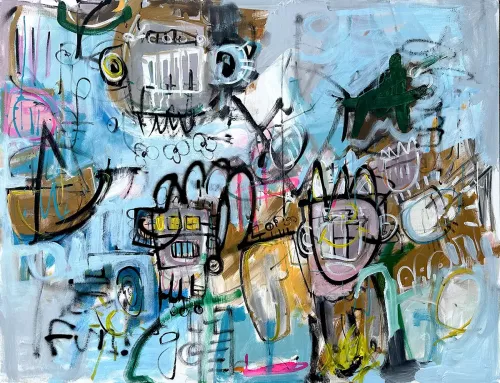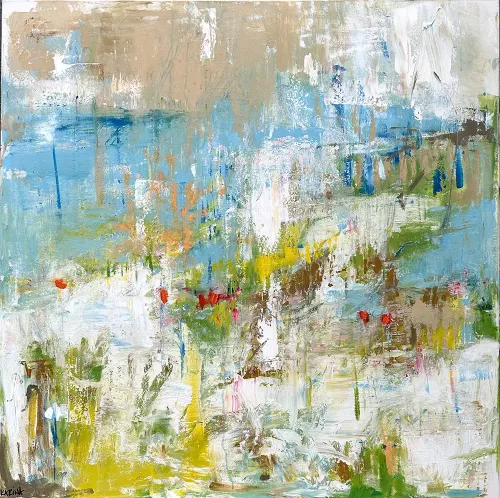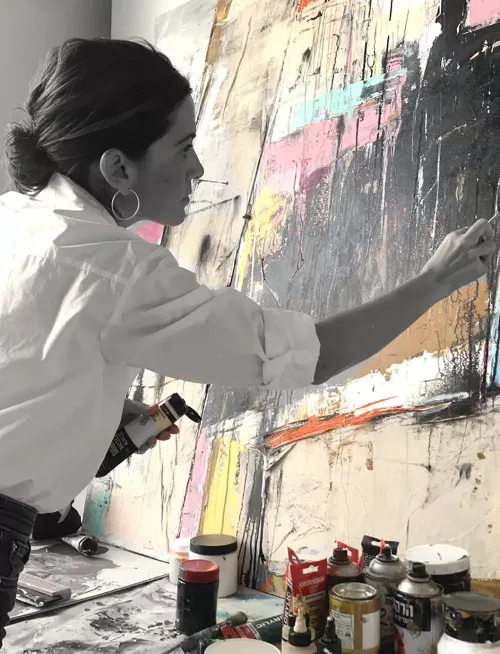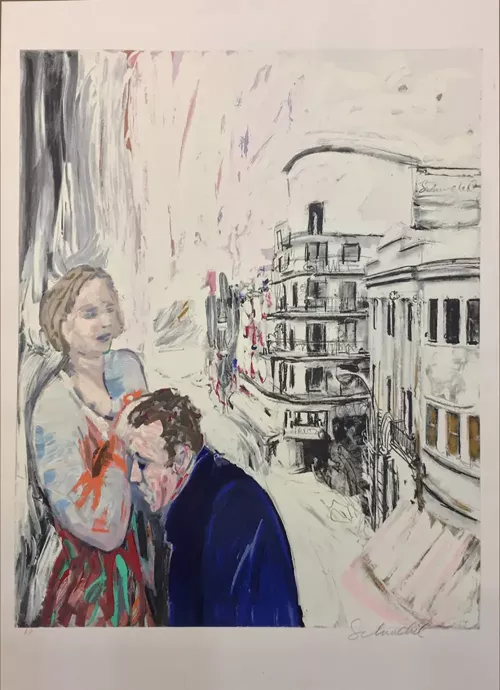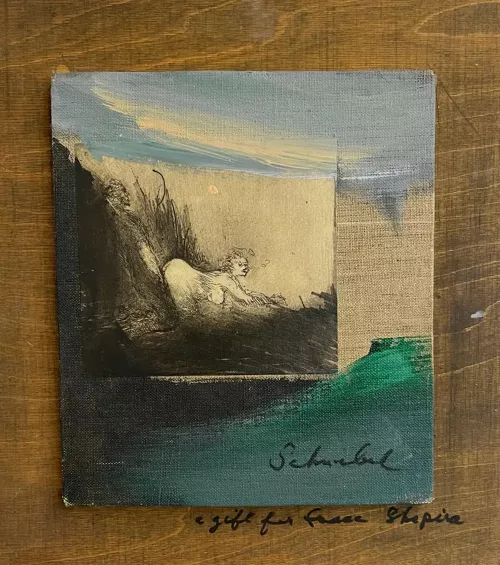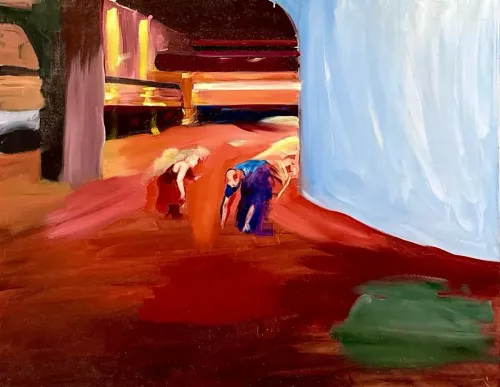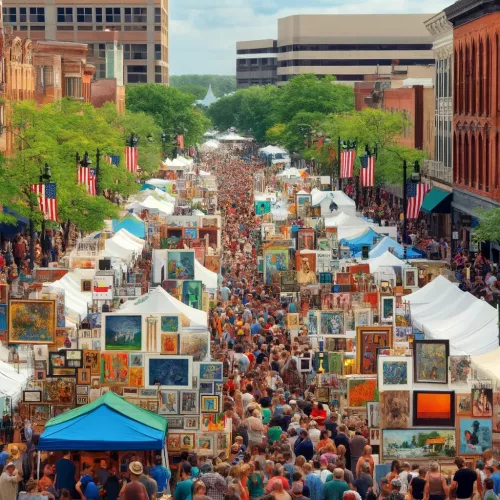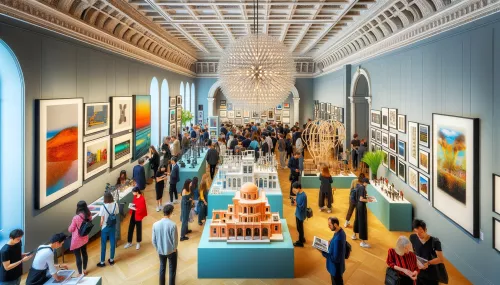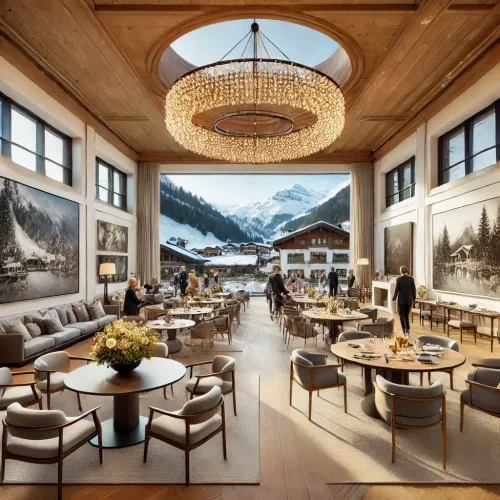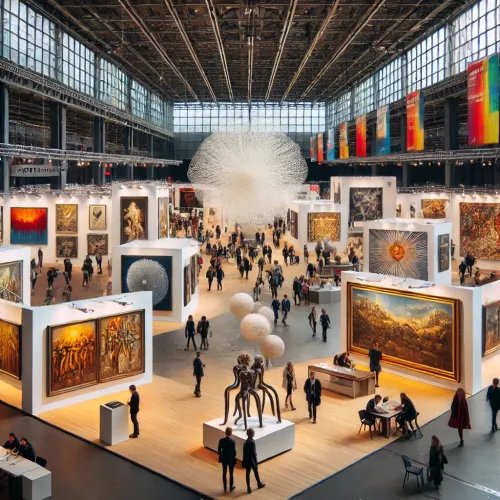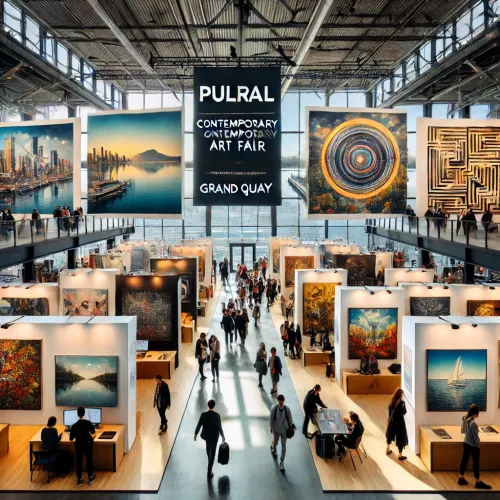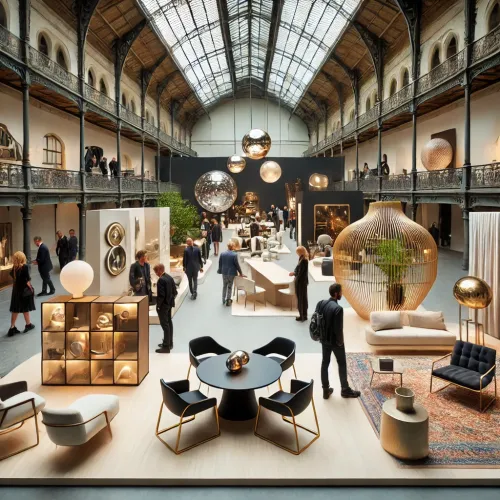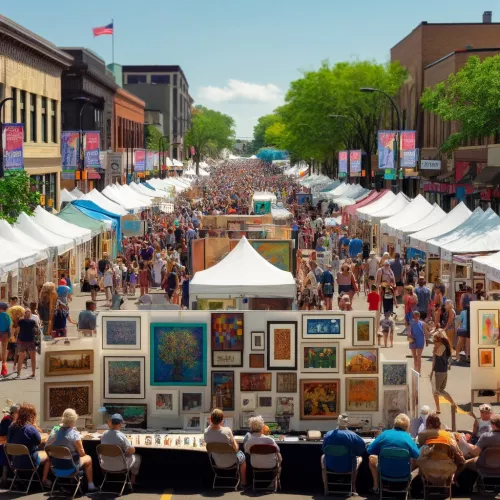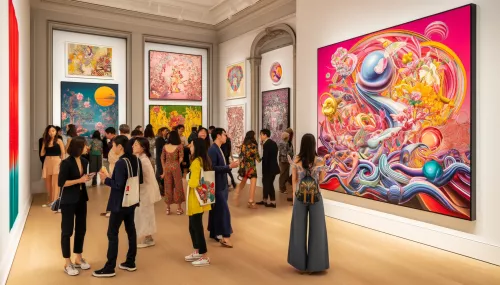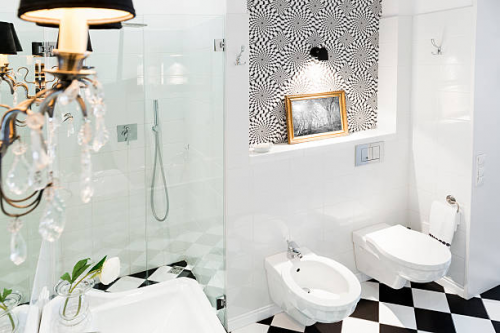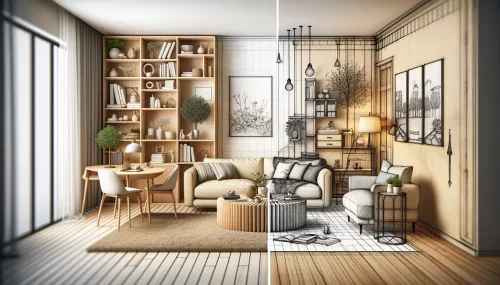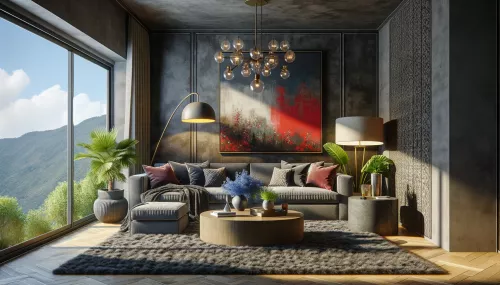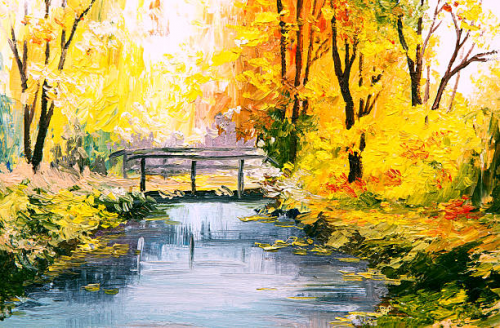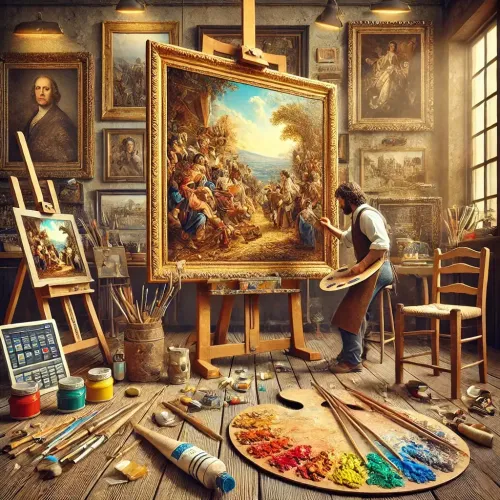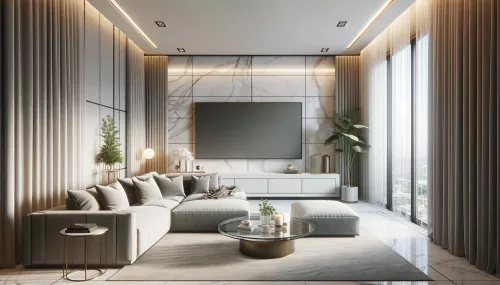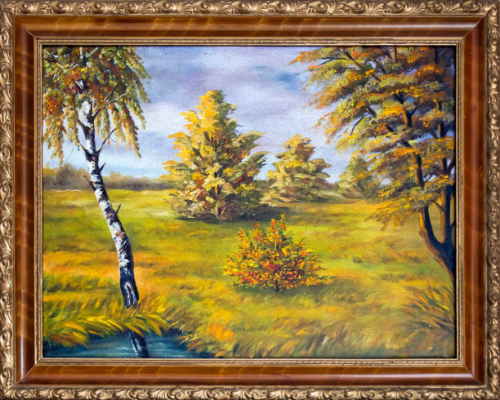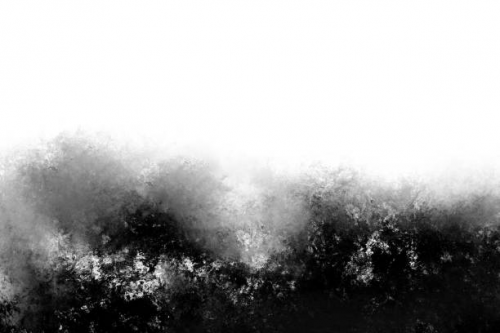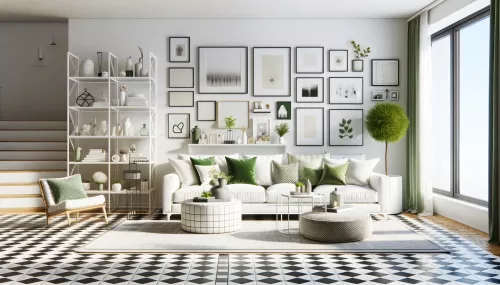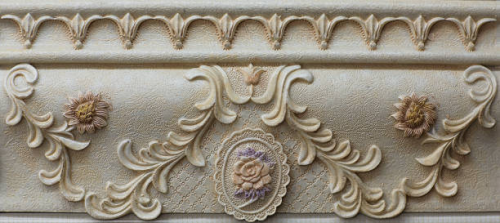Room Painting
, 2000
An abstract artwork with vivid blocks of red, blue, and mustard colors, evoking a modern and contemplative atmosphere.
The painting titled "Room" by Uri Reisman is an abstract piece, measuring 90.63 cm. The composition features bold color blocks, with a prominent red section, a striking blue vertical stripe, and mustard accents. Simplified shapes suggest elements of a room interior, including a table and chairs, rendered in an abstract style. The color palette includes primary and warm colors, creating a dynamic and visually engaging contrast. The flat lighting emphasizes the geometric forms and color fields, giving the piece a modern and minimalist feel. The mood is contemplative and serene, making it suitable for contemporary spaces such as living rooms, offices, or studies. This painting would serve as a focal point, adding a touch of modern elegance and thoughtfulness to the space.
Global delivery managed by our logistics specialists.
Shipping costs, duties, and taxes are not covered in the price.
14-day no-cost return policy (excluding custom-made items).
Track your order using a tracking link sent to your email.
Your order is fully secured against any damage or loss.
Return Policy: 14-day free returns.
Returns are accepted within 14 days. WeArt is fully committed to customer satisfaction: you have 14 days to return an original work. The work must be returned to the artist in perfect condition, in its original packaging. All eligible items can be returned (unless otherwise indicated).
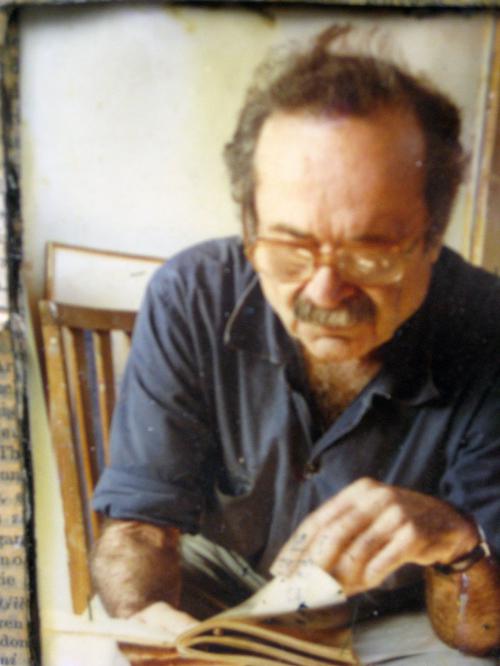
Biography
Uri Reisman's art, blending personal and cultural themes, gained recognition posthumously, with exhibitions showcasing his diverse work in prominent Israeli museums.
Uri Reisman was an Israeli painter born in Kibbutz Tel Yosef. He moved with his family to Tel Aviv and spent two years in Paris. Reisman was a founding member of Kibbutz Beit HaArava near the Dead Sea and later Kibbutz Kabri in the Western Galilee.
Reisman studied art under Yitzhak Frenkel and spent several years in Paris, studying at the École nationale supérieure des Beaux-Arts and in the studio of painter Jean Souverbie. Upon returning to Israel, he established a studio in Kibbutz Kabri and traveled back to Paris in the 1970s.
Reisman's work did not receive artistic recognition until after his death. He exhibited at the Tel Aviv Museum of Art and the Mishkan Museum of Art at Ein Harod.
His works covered various themes, including portraits and customs of the Yemenite community (he married a Yemenite woman), as well as numerous landscapes and portraits.
-
Liliane DaninoSand on Leather69 X 75 cm | 27.17 X 29.53 inches
£ 3152 € 3812 ₪ 14348 $ 4000 Ish GordonAcrylic on Canvas70 X 46 cm | 27.56 X 18.11 inches£ 3026 € 3660 ₪ 13774 $ 3840 Gill BustamanteOil on Canvas152.4 X 76.2 cm | 60 X 30 inches£ 4980 € 6023 ₪ 22670 $ 6320 Ziv TidharOil on Canvas100 X 100 cm | 39.37 X 39.37 inches£ 1241 € 1501 ₪ 5650 $ 1575 Tomas CastanoOil on Canvas46 X 61 cm | 18.11 X 24.02 inches£ 4173 € 5047 ₪ 18997 $ 5296 Gill BustamanteOil on Canvas152.4 X 76.2 cm | 60 X 30 inches£ 4980 € 6023 ₪ 22670 $ 6320 Ivan Schwebel50 X 50 cm | 19.69 X 19.69 inches£ 165 € 200 ₪ 753 $ 210 Ora UzielOil on Canvas90 X 70 cm | 35.43 X 27.56 inches£ 3940 € 4765 ₪ 17935 $ 5000 Gill BustamanteOil on Canvas101.6 X 101.6 cm | 40 X 40 inches£ 4779 € 5780 ₪ 21755 $ 6065 Gili CohenMixed Technique135 X 100 cm | 53.15 X 39.37 inches£ 1513 € 1830 ₪ 6887 $ 1920 db WatermanMixed Technique80 X 120 cm | 31.5 X 47.24 inches£ 5516 € 6671 ₪ 25109 $ 7000 Arie LubinLithography72 X 47 cm | 28.35 X 18.5 inches£ 414 € 500 ₪ 1883 $ 525 Meet We Art's artists-
Surrealism | Figurative | Naive Art
-
Pop Art | Surrealism | Figurative | Contemporary
Events around the world-
United States / Ann ArborArt Fairs20/12/2024 - 20/07/2024
-
United Kingdom / LondonGallery shows20/12/2024 - 30/06/2024
-
Switzerland / Zurich, SwitzerlandArt Fairs20/12/2024 - 11/02/2025
-
Switzerland / Gstaad, SwitzerlandArt Fairs20/12/2024 - 16/02/2025
-
Netherlands The / Rotterdam, NetherlandsArt Fairs20/12/2024 - 30/03/2025
-
Canada / Montreal, Quebec, CanadaArt Fairs20/12/2024 - 13/04/2025
-
Belgium / Brussels, BelgiumArt Fairs20/12/2024 - 16/03/2025
-
United States / EdinaArt Fairs20/12/2024 - 02/06/2024
-
United States / New YorkGallery shows20/12/2024 - 15/06/2024
-
United States / New YorkGallery shows20/12/2024 - 30/06/2024
-
Finland / TurkuExhibitions20/12/2024 - 14/12/2024
-
United States / New YorkArt Fairs20/12/2024 - 08/09/2024
Explore We Art guidesI am an art lover,
a collectorCreate an account to save your
favorites and receive personal offers.Already have an account?This website uses cookies to improve performance and to enhance the user experience.Accept

























































































































































































































































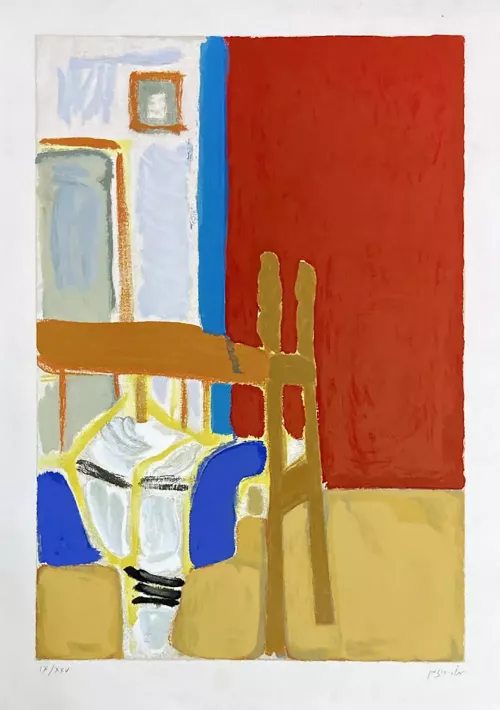







 in artwork
in artwork
 in artwork
in artwork

